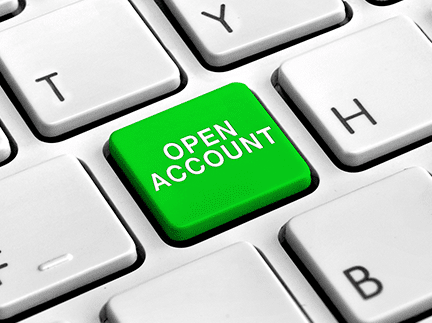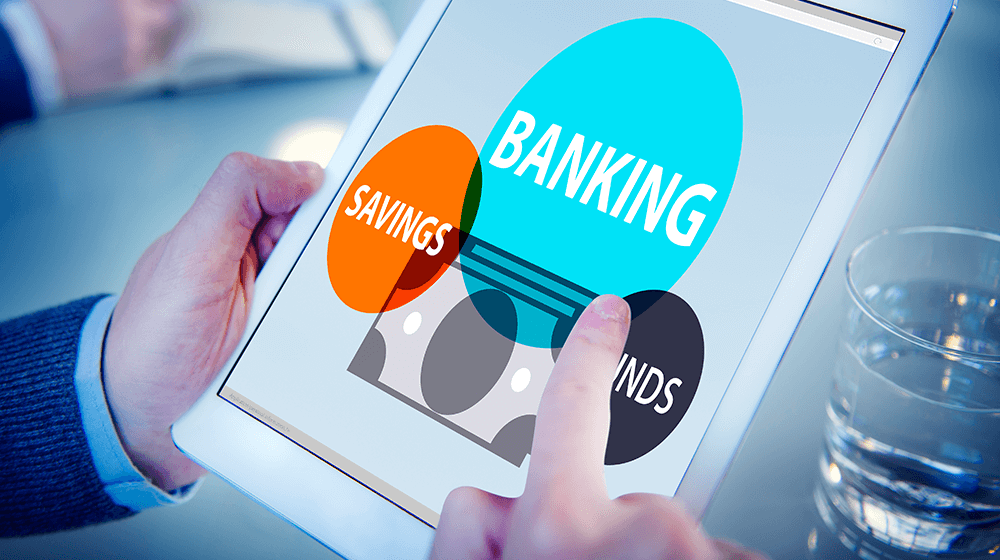Leading Tips for Opening a Checking Account: Make Certain Reliable and smooth Setup
Opening a savings account might appear straightforward, yet a systematic approach can significantly improve the experience and set the phase for an effective financial partnership. By understanding the selection of account kinds readily available, gathering vital paperwork, and contrasting banking organizations, one can avoid typical mistakes. Furthermore, thinking about the nuances in between online and traditional banking options is essential. The most important action often lies in comprehensively reviewing the problems and terms-- an element numerous overlook. What follows might make all the difference in your financial experience and financial wellness.
Understand Different Account Kind
When opening up a savings account, it is necessary to familiarize on your own with the numerous account types offered. Recognizing these choices will enable you to select an account that finest fits your economic needs and objectives.

Savings accounts, on the various other hand, are created for conserving money and normally provide greater rate of interest than checking accounts. They may have withdrawal restrictions, encouraging you to save in time. For individuals seeking a higher return on their savings, CDs supply fixed rate of interest for a specified term, but they require you to secure your funds until maturity.
Additionally, there are specific accounts like cash market accounts and pension, each with distinct attributes and advantages. By comprehensively understanding these account kinds, you can make educated choices that straighten with your monetary method and way of life.
Gather Required Documents
Collecting the essential documents is a vital action in the process of opening a bank account. Correct documentation not just helps with a smooth application procedure yet also helps in validating your identification, making sure compliance with regulatory requirements.
Usually, you will require to provide a government-issued image identification, such as a key or driver's certificate. This acts as evidence of identity and residency. In addition, a Social Safety And Security Number (SSN) or Specific Taxpayer Recognition Number (ITIN) is frequently needed for tax obligation coverage objectives. Some bankss may likewise ask for proof of address, which can be shown with energy bills, lease arrangements, or bank declarations.

Additionally, if you are a small, adult permission and identification might be required. It's advisable to get in touch with the details bank regarding their documentation demands ahead of time, as these can differ. By ensuring all needed records prepare, you can expedite the account opening procedure and stay clear of prospective delays.
Research Banks and Fees
A thorough comparison of numerous bankss and their cost frameworks is vital for choosing the right economic institution for your demands. Various bankss offer a series of services, and recognizing their costs can substantially influence your total banking experience. Begin by identifying your financial requirements, such as whether you require a checking account, financial savings account, or both.
Next, analyze the charge structures connected with each account type. Usual charges include month-to-month upkeep fees, over-limit charges, atm machine use fees, and international transaction fees. Some bankss might forgo these charges if you maintain a minimum equilibrium or established straight down payments.
Furthermore, explore any type of costs associated to account services, such as cable transfers, published declarations, or check orders. It is likewise a good idea to examine the interest prices offered on cost savings accounts, as these can differ considerably among establishments.
Take into consideration Online vs. In-Person
Selecting in between online and in-person banking can considerably affect your general banking experience and ease (bank account opening). Each alternative provides special advantages that satisfy different choices and lifestyles
On the internet financial supplies a high degree of versatility and access. With the capability to handle your account from anywhere using a smartphone or computer, on-line banking allows for fast deals, equilibrium checks, and costs repayments at any moment. Additionally, many on-line bankss offer competitive passion rates and lower my website costs as a result of decreased expenses prices.
Alternatively, in-person financial provides a personal touch that some consumers might find encouraging. Seeing a physical branch enables straight interaction with bank agents, which can be specifically helpful for intricate inquiries or financial recommendations. In-person banking additionally allows consumers to deposit money, obtain instant help, and build connections with personnel, promoting a sense of trust.
Inevitably, the decision in between online and in-person banking ought to be based on your individual demands, comfort degree with innovation, and the details solutions you need. Consider your banking routines and choices thoroughly to figure out which option straightens finest with your monetary objectives.
Review Terms and Conditions

When reviewing the terms and conditions, pay attention to crucial elements such as charges, rates of interest, and account attributes. Look for regular monthly upkeep fees, purchase limitations, and fines for overdraft accounts or early withdrawals (bank account opening). Understanding these fees can help you avoid unanticipated charges and manage your financial resources better
In addition, think about the rate of interest provided on financial savings or examining accounts. Greater rate of interest can considerably influence your cost savings in time. It's also vital to understand the terms associated with benefits, incentives programs, and promotional offers, as these can boost your financial experience.
Last but not least, guarantee you are mindful of the bank's plans on customer support, dispute resolution, and privacy. Acquainting yourself with these conditions will encourage you to make informed decisions and establish an efficient relationship with your bank. Putting in the time to extensively evaluate the terms and problems can prevent future misconceptions and foster lasting contentment with your banking experience.
Final Thought
To conclude, a knowledgeable approach to opening a checking account promotes a smooth and reliable configuration process. Comprehending the various account types, collecting essential documents, and researching bankss and associated charges are essential actions. Additionally, considering the advantages of in-person versus on the internet financial options can improve comfort. Careful review of terms and problems makes sure clearness regarding fees, features, and account holder obligations, eventually leading to a more satisfactory banking experience.
Opening a bank account may seem uncomplicated, yet a methodical method can significantly boost the experience and set the stage for an effective banking relationship.The most common kinds of accounts consist of checking accounts, cost savings accounts, and certificates of down payment (CDs)Financial savings accounts, on the other hand, are created for navigate to this site conserving money and Home Page typically supply greater rate of interest rates than examining accounts. Begin by determining your banking needs, such as whether you need a checking account, financial savings account, or both.
Recognizing the various account kinds, gathering required documents, and investigating bankss and associated fees are vital steps.